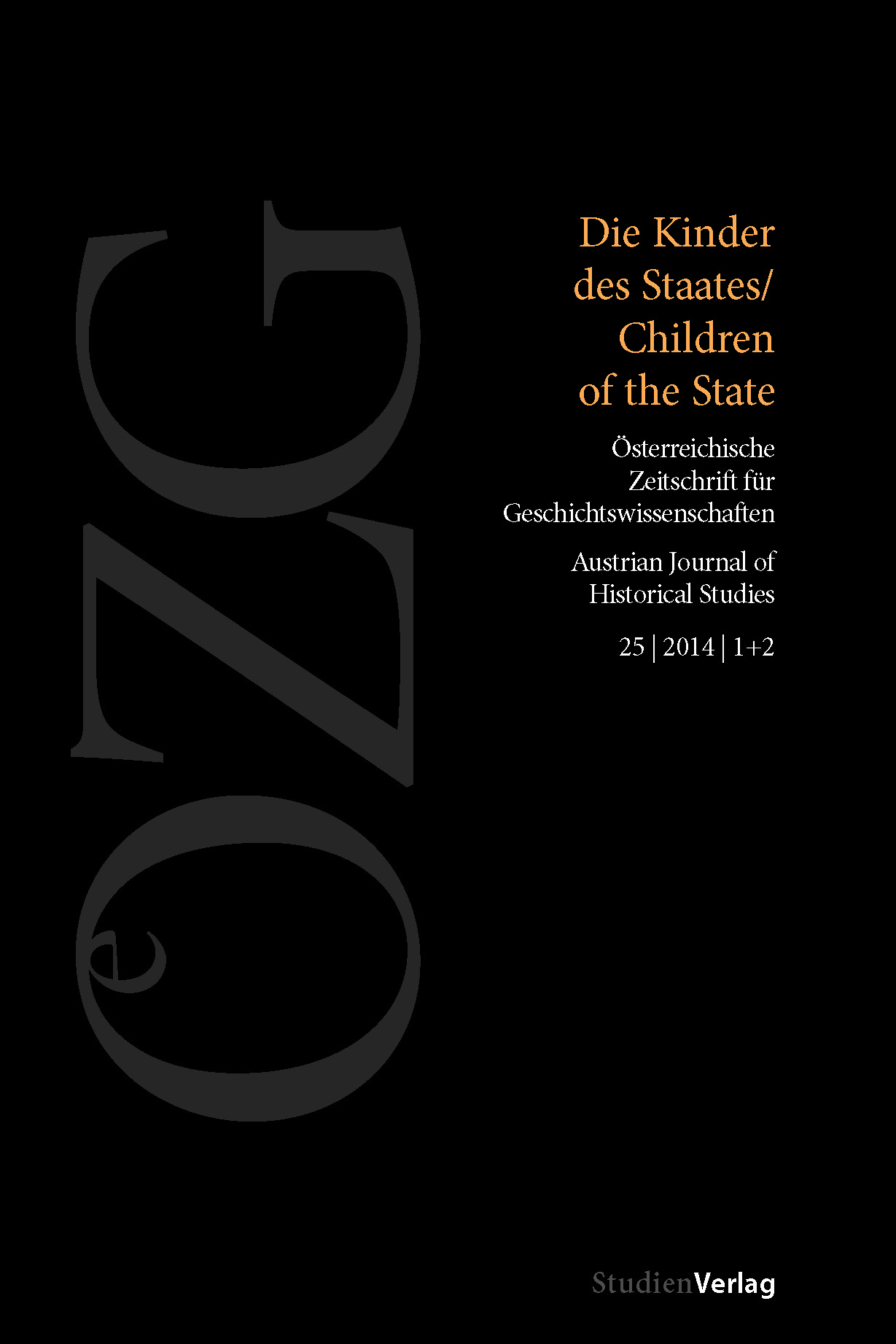Religion als Gehorsam
Konfessionelle Heimerziehung in der Bundesrepublik Deutschland 1945–1975
DOI:
https://doi.org/10.25365/oezg-2014-25-1-12Schlagworte:
confessional residential care, 1950s and 1960s, child abuse, belated modernisation, socialdisciplinary interventionAbstract
The debate in Germany about boarding schools and residential care in the 1950s and 1960s dealt with brute force and child abuse. More than seventy percent of the residential care institutions were run by the churches. The relation between religion, obedience and discipline was characteristic for this field of socialdisciplinary intervention. The draft will show statistical evidence and outline the tradition and reality of correctional education in Germany. It shows the development from the poor conditions in the early years after the Second World War to the change of generations and educational institutions at the end of the 1960s in Germany. In many respects everyday life in these educational homes had the character of „total institutions“, according to the concept of Erving Goffman. Religious education reinforced authoritarian behaviour and was paired with a quantitative and qualitative lack of personnel in the institutions. The „belated modernisation“ of the correctional education in Germany took much more time than the modernisation of society in general.


